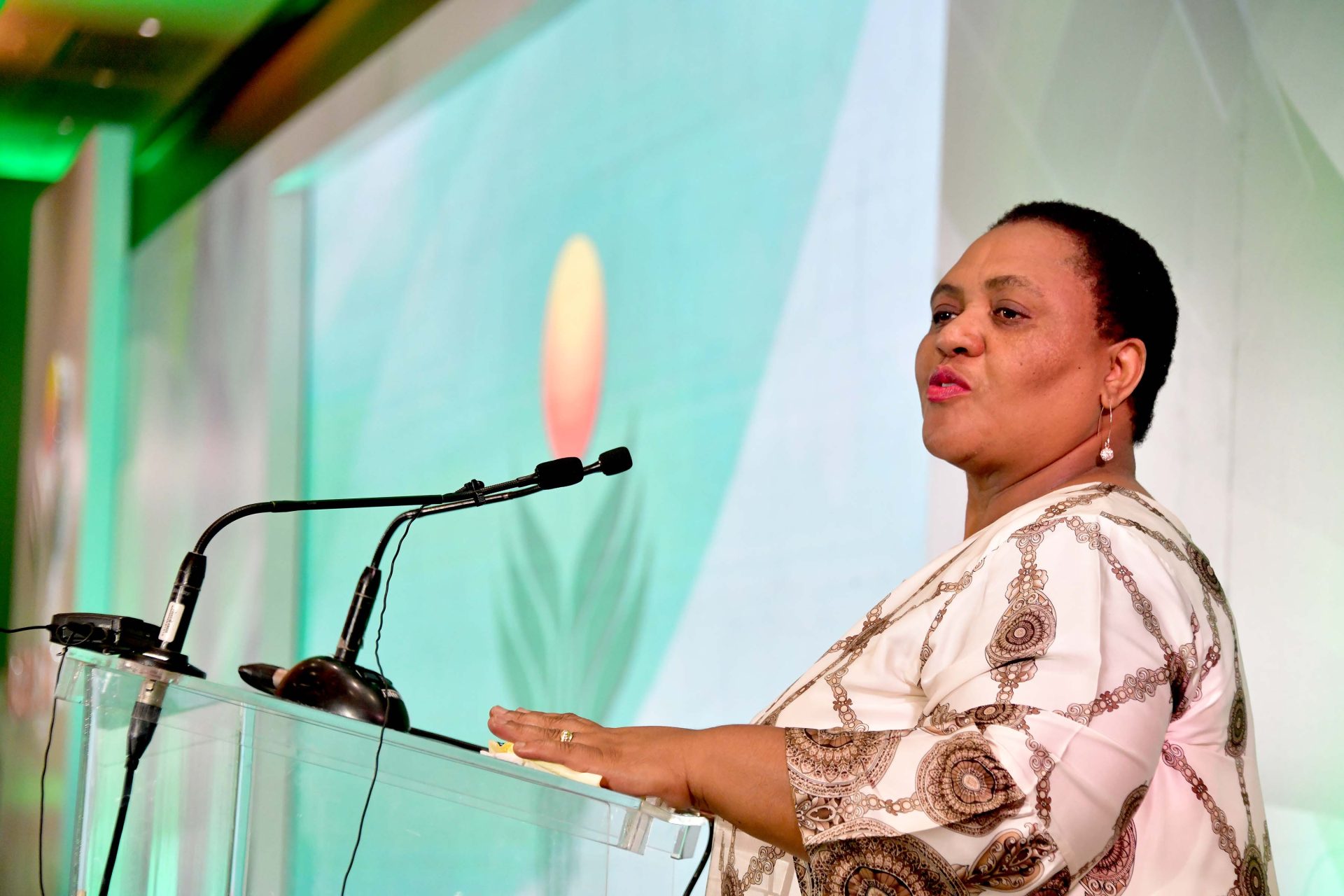“Malibongwe igama lamakhosikazi.”
This anthem rang through the halls as the ANC caucus celebrated Thoko Didiza’s appointment as the new Speaker of the National Assembly this Friday afternoon in the Seventh Parliament.
The song honors the significant contributions of women to the liberation struggle.
During the inaugural session at the Cape Town International Convention Centre, Didiza was a nominee for the speaker position alongside Veronica Mente from the EFF.
Following a secret ballot, Chief Justice Raymond Zondo revealed that out of 341 votes, 9 were invalid. Didiza garnered 284 votes to Mente’s 49.
Shortly after her election, Didiza promptly addressed the assembly, humorously calling her colleagues to order and expressing gratitude towards the ANC for her nomination. She remarked, “As a country and as a state, we have an opportunity to express our views and represent our constituencies, but it does not mean that those who might have voted differently do not support the institution. This is an important institution in our country, and the work we do in passing those laws plays an oversight role. We need to do so in the interest of our people.”
She pledged to collaborate with her team and other political factions “in a manner that reflects the will of the people.”
The nomination process began with the ANC’s Pemmy Majodina proposing Didiza, while the ATM’s Vuyolwethu Zungula nominated Mente, seconded by UDM’s Bantu Holomisa. Mente accepted the nomination.
Post-voting, as Zondo announced the vote counting would be secret, the EFF’s Mbuyiseni Ndlozi protested, arguing for transparency. Floyd Shivambu of the EFF stated, “You cannot go and count the votes somewhere, and we are not observing. When we voted on former president Jacob Zuma, we counted in front of the people. Please delete that rule.”
Zondo replied, emphasizing the continuity of established procedures. “The rules that stand are the rules that I applied in 2019, so the rules are the same. I cannot decide to delete a rule as it is. If it’s unconstitutional, it would have to be set aside by the relevant court,” he clarified.
Amidst the debate, the DA’s Siviwe Gwarube argued against on-the-spot rule changes, noting that concerns should have been addressed earlier.
The ANC’s Mdumiseni Ntuli suggested a compromise, proposing that party whips could oversee the vote counting instead. Julius Malema supported this approach, highlighting the global norm of observed vote counting. Eventually, Zondo agreed that party representatives could watch the counting.
Didiza, with extensive experience mainly in ministerial roles, was seen as a leading candidate for Speaker following Baleka Mbete’s departure in 2019. Her first ministerial role was as deputy agriculture minister in Nelson Mandela’s cabinet post-1994 elections, marking her as the youngest at that time.
Her tenure included roles as the agriculture minister under Thabo Mbeki in 1999 and later as the public works minister in 2006. Following the contentious ANC presidential election in 2007 at Polokwane, Didiza stepped back from politics after being replaced in the Cabinet by then-interim president Kgalema Motlanthe.
She returned to the political arena after being elected to the ANC’s national executive committee in 2012. However, her nomination for Tshwane mayor in 2016 led to internal conflict and widespread protests, resulting in the ANC losing control of the metro.
Didiza also served on the constitutional amendment committee in 2019 but was appointed to President Cyril Ramaphosa’s Cabinet. Recently, she faced opposition from AmaZulu King Misuzulu kaZwelithini, who claimed her department aimed to undermine the powers of traditional chiefs by adhering to a 2021 High Court ruling concerning the Ingonyama Trust.
#Thoko #Didiza #Elected #Speaker #National #Assembly



